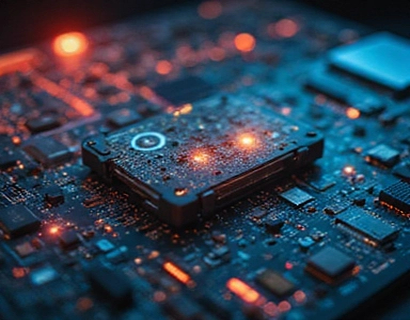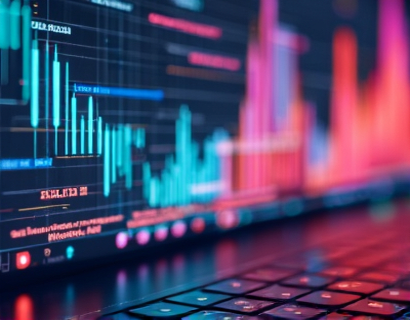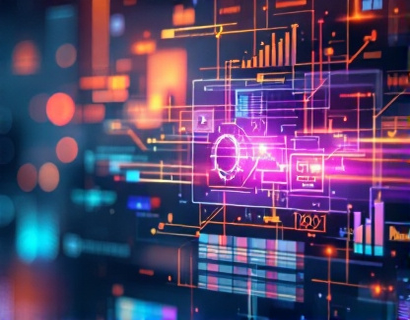AI and Crypto Synergy: Elevating Digital Finance with Intelligent Solutions for the Future
The intersection of artificial intelligence (AI) and cryptocurrency is redefining the landscape of digital finance. This synergy is not just a trend but a transformative force that is reshaping how we perceive, interact with, and utilize financial technologies. As we delve into this topic, it's essential to understand the foundational elements of both AI and cryptocurrency, and how their convergence is creating intelligent solutions that promise to revolutionize the FinTech industry.
Artificial intelligence, at its core, involves the simulation of human intelligence processes by machines, particularly computer systems. These processes include learning (the acquisition of information and rules for using it), reasoning (using rules to reach approximate or definite conclusions), and self-correction. In the context of digital finance, AI is leveraged to analyze vast amounts of data, identify patterns, make predictions, and automate complex tasks with unprecedented accuracy and speed.
Cryptocurrency, on the other hand, is a digital or virtual currency that uses cryptography for security. It operates on a decentralized network, typically a blockchain, which ensures transparency, immutability, and security of transactions. The most well-known cryptocurrency is Bitcoin, but there are thousands of others, each with unique features and use cases. The decentralized nature of cryptocurrencies eliminates the need for intermediaries, reducing transaction costs and increasing financial inclusivity.
The synergy between AI and cryptocurrency begins with data analysis. Cryptocurrency markets are notoriously volatile and complex, with prices influenced by a myriad of factors including market sentiment, economic indicators, and technological advancements. AI algorithms can process and analyze these vast datasets in real-time, identifying trends and patterns that human analysts might miss. This capability is crucial for making informed investment decisions, risk management, and optimizing trading strategies.
One of the key applications of AI in cryptocurrency is predictive analytics. Machine learning models, a subset of AI, can be trained on historical data to forecast future price movements. These models use various techniques such as regression analysis, neural networks, and deep learning to predict trends with a high degree of accuracy. For investors, this means better timing of trades, reduced risk, and potentially higher returns. Moreover, AI-driven bots can execute trades automatically based on predefined criteria, ensuring that decisions are made swiftly and without emotional bias.
Beyond individual trading, AI is also transforming the broader ecosystem of cryptocurrency. Smart contracts, self-executing contracts with the terms directly written into code, are a prime example. AI can enhance smart contracts by adding layers of intelligence, such as adaptive conditions and automated dispute resolution. This not only increases the efficiency of transactions but also reduces the need for intermediaries, lowering costs and increasing trust in the system.
Another area where AI and cryptocurrency intersect is in cybersecurity. Cryptocurrency exchanges and wallets are prime targets for cyberattacks due to the high value of digital assets. AI-powered security systems can detect and mitigate threats in real-time by analyzing patterns and anomalies in transaction data. Machine learning algorithms can adapt to new threats, continuously improving the security posture of crypto platforms. This proactive approach to security is vital in a landscape where cyber threats are becoming increasingly sophisticated.
The integration of AI in cryptocurrency also extends to the development of new financial instruments and services. Decentralized finance (DeFi) is a rapidly growing sector that leverages blockchain technology to create financial applications without traditional intermediaries. AI can enhance DeFi platforms by providing personalized financial advice, optimizing portfolio management, and identifying arbitrage opportunities. These intelligent solutions make DeFi more accessible and user-friendly, attracting a broader audience to the crypto ecosystem.
Furthermore, AI is playing a crucial role in enhancing the user experience on cryptocurrency platforms. Chatbots and virtual assistants powered by natural language processing (NLP) can provide 24/7 customer support, answer queries, and guide users through complex processes. This not only improves user satisfaction but also reduces the workload on human support teams, allowing them to focus on more strategic tasks.
The synergy between AI and cryptocurrency is not limited to the tech aspects; it also has significant implications for the regulatory and compliance landscape. Regulators are increasingly recognizing the potential of AI to monitor and enforce compliance in the crypto space. AI-driven systems can analyze transactions for signs of illegal activities such as money laundering and fraud, ensuring that the market remains fair and transparent. This regulatory tech (RegTech) is essential for building trust and fostering sustainable growth in the crypto industry.
Looking ahead, the future of digital finance is deeply intertwined with the continued advancement of AI and cryptocurrency. As AI technologies become more sophisticated, we can expect even more innovative applications in the crypto space. For instance, the development of AI-powered decentralized autonomous organizations (DAOs) could redefine governance and decision-making processes within crypto communities. These AI-driven DAOs can automate voting mechanisms, resource allocation, and strategic planning, creating more democratic and efficient organizations.
Another exciting frontier is the integration of AI with other emerging technologies such as the Internet of Things (IoT) and 5G networks. The combination of these technologies can lead to the creation of smart financial ecosystems where devices and systems interact seamlessly, enabling real-time financial transactions and services. For example, IoT devices can trigger automated payments based on usage data, while 5G networks ensure fast and reliable communication between these devices and the blockchain network.
The potential benefits of this synergy are vast. Enhanced efficiency, reduced costs, increased security, and improved user experiences are just the beginning. As more businesses and individuals adopt AI-enhanced crypto solutions, the overall financial system is likely to become more resilient and adaptive to changing conditions. This transformation is particularly significant for underserved populations, as crypto and AI can provide access to financial services without the need for traditional banking infrastructure.
However, the path forward is not without challenges. The rapid pace of technological change requires continuous learning and adaptation. There are also concerns about the ethical use of AI, data privacy, and the potential for increased market volatility. Addressing these issues through robust frameworks and best practices will be crucial for the sustainable growth of AI and crypto synergy.
In conclusion, the fusion of AI and cryptocurrency is a powerful force that is reshaping the future of digital finance. By leveraging the strengths of both technologies, we can create intelligent, secure, and inclusive financial solutions that cater to the needs of a rapidly evolving world. As tech enthusiasts and innovators, embracing this synergy is not just an opportunity but a necessity for staying ahead in the FinTech landscape.










































